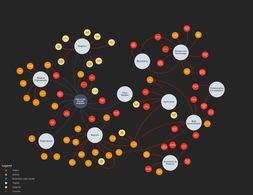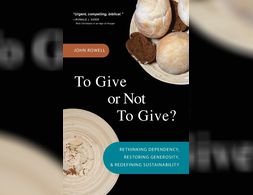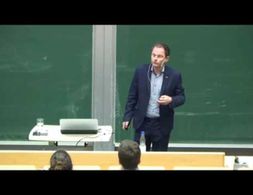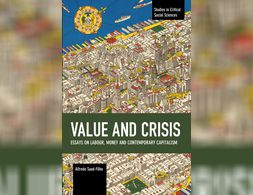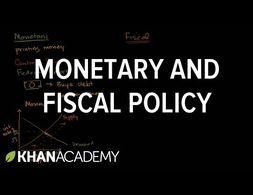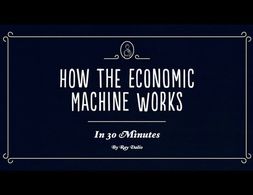✕
606 results
The podcast exposes the concept and principles of co-operatives and the three main types of co-operatives: the consumer, credit and farmers buying and selling co-operatives. Furthermore, the history of the co-operative movement is presented. The authors draw the line from co-operatives to "degrowth" by arguing that these organisations discourage profit maximisation due to their ownership structure, their social purpose and their primacy of people over capital. The value of the members' co-operative share does not increase with the growth of a co-operative and it can not be used for speculation. Finally, the authors give examples for current co-operatives which empower (local) communities fostering social justice and environmentalism.
A multimedia dossier outlining the various dimensions of credit and indebtedness for various actors such as individuals and governments. Special emphasis is put on the reflections of normative and power laden discourse sorrounding the issue of borrowing and on false analogies placed between household and government debt.
This content submission has two parts: (1) a link to the post by Wolf Richter on deterioration of US subprime credit card debt and loans, driven in part by the overuse of hedonic quality adjustments in the Consumer Price Index (CPI) used by the US Bureau of Labor Statistics, and (2) to introduce Exploring Economics to the website Naked Capitalism, which is an effort to promote critical thinking through the medium of a finance and economics blog and fearless commentary.
The resource map contains links to a collection of resources related to the circular economy, which include videos, presentations, graphics, business case studies and articles. Many of the resources were created by the Ellen MacArthur Foundation, others are given credit where due.
Modern mission theory is guided largely by the three self paradigm that suggests indigenous churches can only be healthy if they are self-governing, self-propagating, and self-supporting. Consequently, Western missionaries, their churches, and their agencies have been increasingly indisposed to giving generously. We must rethink the interplay of dollars dependency and what it means to do the right thing with our money as we pursue twenty-first century missions.
Steve Keen analyses how mainstream economics fails when confronted with the covid-19-pandemic. Mainstream economics has propagated the dismantling of the state and the globalization of production - both of which make the crisis now so devastating. More fundamentally, mainstream economics deals with market systems, when what is needed to limit the virus’s spread is a command system.
After completing the module, participants should be able to have general overview on the theory of commons. They can differentiate between neoclassical, new institutional and social/critical commons theory and can use these theories to assess real life common-pool resource management and commoning pratices.
Completing the Economics of Discrimination module, the students should have acquired knowledge and understanding of the existing similarities and differences of the definition and analysis of discrimination across economic theory and cultural theory.
Marx’s theory of the falling rate of profit is not only empirically borne out, but the theory he proposed seems to describe accurately how that happens. Furthermore, the whole process is useful for understanding the history of contemporary capitalism.
Focusing on Kenya’s path-breaking mobile money project M-Pesa, this book examines and critiques the narratives and institutions of digital financial inclusion as a development strategy for gender equality, arguing for a politics of redistribution to guide future digital financial inclusion projects.
Mainstream economic theory has been increasingly questioned following the recent global financial crisis. Marc Lavoie shows how post-Keynesian theory can function as a coherent substitute by focusing on realistic assumptions and integrating the financial and real sides of the economy.
What is money and how is it used? After answering these questions, Dirk Bezemer analyses how finance can be dysfunctional for the real economy.
This is an overview of (possibly transformative) proposals to address the economic consequences of the corona crisis
Debunking Economics - Revised and Expanded Edition exposes what many non-economists may have suspected and a minority of economists have long known: that economic theory is not only unpalatable, but also plain wrong. When the original Debunking Economics was published back in 2001, the market economy seemed invincible, and conventional "neoclassical" economic theory basked in the limelight.
Marxian Political Economy focuses on the exploitation of labour by capital. The economy is not conceived as consisting of neutral transactions for exchange and cooperation, but instead as having developed historically out of asymmetric distributions of power, ideology and social conflicts.
A historical glimpse of how economists of the 19th century debated the usefulness of mathematics to economics
Economists like to base their theories on individual decision making. Individuals, the idea goes, have their own interests and preferences, and if we don’t include these in our theory we can’t be sure how people will react to changes in their economic circumstances and policy. While there may be social influences, in an important sense the buck stops with individuals. Understanding how individuals process information to come to decisions about their health, wealth and happiness is crucial. You can count me as someone who thinks that on the whole, this is quite a sensible view.
In this series of webinars, several researchers face different topics related to Degrowth. Money, health, Green New Deal, Anarchism, and many more.
In this paper the main developments in post-Keynesian macroeconomics since the mid- 1990s will be reviewed. For this purpose the main differences between heterodox economics in general, including post-Keynesian economics, and orthodox economics will be reiterated and an overview over the strands of post-Keynesian economics, their commonalities and developments since the 1930s will be outlined. This will provide the grounds for touching upon three important areas of development and progress of post-Keynesian macroeconomics since the mid-1990s: first, the integration of distribution issues and distributional conflict into short- and long-run macroeconomics, both in theoretical and in empirical/applied works; second, the integrated analysis of money, finance and macroeconomics and its application to changing institutional and historical circumstances, like the process of financialisation; and third, the development of full-blown macroeconomic models, providing alternatives to the mainstream 'New Consensus Model' (NCM), and allowing to derive a full macroeconomic policy mix as a more convincing alternative to the one implied and proposed by the mainstream NCM, which has desperately failed in the face of the recent crises.
Value and Crisis brings together selected essays written by Alfredo Saad-Filho, one of the most prominent Marxist political economists writing today. Divided into two parts, "Essays on the Theory of Value" and "Essays on Contemporary Capitalism," this book examines the labour theory of value from a rich and innovative perspective from which fresh insights are derived.
Potts (economics, University of Queensland) proposes evolutionary microeconomics as a synthesis of the collective schools of heterodox economic thought with complex systems theory and graph theory.
This video by the Khan Academy presents the difference between monetary policy and fiscal policy and how they affect aggregate demand. The video especially elaborates on the basic explanation on how expansionary monetary policy increases aggregate demand via the market for money and the AD-AS model.
In this radio interview, Andrew Sayer first outlines some features of neoliberalism and policies that are associated with it. Then a difference between wealth creation via investment and wealth extraction by means of lending money to those deprived of it or by acquiring property such as real estate or financial assets on the secondary market as absentee owner is established. In this context reference is made to J.A. Hobson's concept of "improperty." Finally, there are some words on the power dynamics associated with capitalism and its relation to climate change.
The author identifies three principal economic phenomena, which are explained: long run productivity growth as the central driver of increasing economic activity, short-term and long-term debt cycles. The latter two are explained to some detailed with reference to money creation, central banking and long term crisis tendencies. With regards to the long run debt cycle, which leads into deleveraging and recession, some policy measures which can smoothen the crisis are discussed.
Have you ever wondered why it is so difficult to follow through on new year’s resolutions, such as to exercise more or to start saving more money towards retirement? The agent that most traditional economic models are based on would not struggle to keep up these resolutions. These agents are referred to as homo economicus.
Central banking is anything but clear-cut. As this webinar with Benjamin Braun demonstrates, the standard view of central banks as independent public entities that govern financial markets and "print" money is at least partially misleading.
This course introduces students to the relevance of gender relations in economics as a discipline and in economic processes and outcomes. The course covers three main components of gender in economics and the economy: (1) the gendered nature of the construction and reproduction of economic theory and thought; (2) the relevance and role of gender in economic decision-making; and (3) differences in economic outcomes based on gender. We will touch on the relevance of gender and gender relations in at least each of the following topics: economic theory; the history of economic thought; human capital accumulation; labor market discrimination; macroeconomic policy, including gender budgeting; household economics; basic econometrics; economic history; and economic crises.
This course introduces students to the relevance of gender relations in economics as a discipline and in economic processes and outcomes. The course covers three main components of gender in economics and the economy: (1) the gendered nature of the construction and reproduction of economic theory and thought; (2) the relevance and role of gender in economic decision-making; and (3) differences in economic outcomes based on gender. We wil touch on the relevance of gender and gender relations in at least each of the following topics: economic theory; the history of economic thought; human capital accumulation; labor market discrimination; macroeconomic policy, including gender budgeting; household economics; basic econometrics; and economic crises.
Since the 1980s, the financial sector and its role have increased significantly. This development is often referred to as financialization. Authors working in the heterodox tradition have raised the question whether the changing role of finance manifests a new era in the history of capitalism. The present article first provides some general discussion on the term financialization and presents some stylized facts which highlight the rise of finance. Then, it proceeds by briefly reviewing the main arguments in the Marxian framework that proposedly lead to crisis. Next, two schools of thought in the Marxian tradition are reviewed which consider financialization as the latest stage of capitalism. They highlight the contradictions imposed by financialization that disrupt the growth process and also stress the fragilities imposed by the new growth regime. The two approaches introduced here are the Social Structure of Accumulation Theory and Monthly Review School. The subsequent part proceeds with the Post-Keynesian theory, first introducing potential destabilizing factors before discussing financialization and the finance-led growth regime. The last section provides a comparative summary. While the basic narrative in all approaches considered here is quite similar, major differences stem from the relationship between neoliberalism and financialization and, moreover, from the question of whether financialization can be considered cause or effect.
The economic crisis is also a crisis for economic theory. Most analyses of the evolution of the crisis invoke three themes, contagion, networks and trust, yet none of these play a major role in standard macroeconomic models. What is needed is a theory in which these aspects are central.
In the interview, Robert Skidelsky discusses the emergence of political influence of a certain school of economic thought and how the success of an economic theory depends on the power relations in the society. He introduces the historical example of Keynesian economics and its replacement by liberal economic theory and policy in the aftermath of the Great Depression, and transfers this historical case to the dominant paradigm of austerity policies in the Europe as response to rising public debts caused by the Financial Crisis. He contrasts austerity policies with a Keynesian approach. Furthermore, he relates the targets of policy to the underlying power structures, for example when not the reduction of unemployment but the protection of financial capital is politically addressed.
Global Value Chains (GVCs) started to play an increasing and key role in the global economy from the 1990s on. The market mechanism in GVCs supports industrialisation in the Global South and under certain conditions product and process upgrading. But GVCs do not lead to the catching-up of countries in the sense of them approaching real GDP per capita levels comparable with developed countries. These arguments are supported by a critical interpretation of the traditional trade theory, the New Trade Theory and specific approaches to explain GVCs, especially different governance structures and power relationships. Several case studies support these arguments. For catching-up, countries need comprehensive horizontal and vertical industrial policy and policies for social coherence. The small number of countries which managed to catch up did this in different variations.
We use cookies on our website. Click on Accept to help us to make Exploring Economics constantly better!




